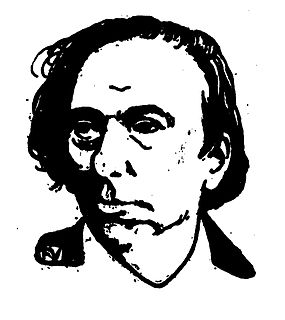A Quote by Leo Tolstoy
And Levin, a happy father and a man in perfect health, was several times so near suicide that he hid the cord, lest he be tempted to hang himself, and was afraid to go out with his gun, for fear of shooting himself. But Levin did not shoot himself, and did not hang himself; he went on living.
Related Quotes
Only to the extent that someone is living out this self transcendence of human existence, is he truly human or does he become his true self. He becomes so, not by concerning himself with his self's actualization, but by forgetting himself and giving himself, overlooking himself and focusing outward.
When Levin thought what he was and what he was living for, he could find no answer to the questions and was reduced to despair; but when he left off questioning himself about it, it seemed as though he knew both what he was and what he was living for, acting and living resolutely and without hesitation.
How does one chip off the marble that doesn't belong? ... That comes about through five things: humility, reverence, inspiration, deep purpose, and joy. No great man has ever wise-cracked his way to greatness. Until one learns to lose one's self he cannot find himself. No one can multiply himself by himself. He must first divide himself and give himself to the service of all, thus placing himself within all others through acts of thoughtfulness and service.
I met the real George Steinbrenner on only one occasion when he actually came and played himself on an episode of 'Seinfeld.' He seemed to really enjoy himself. I did not get to know him, but the fact that he allowed himself and his beloved team to be satirized on our show is an indication to me of his true character.
There is no deception on the part of the woman, where a man bewilders himself: if he deludes his own wits, I can certainly acquit the women. Whatever man allows his mind to dwell upon the imprint his imagination has foolishly taken of women, is fanning the flames within himself -- and, since the woman knows nothing about it, she is not to blame. For if a man incites himself to drown, and will not restrain himself, it is not the water's fault.





































